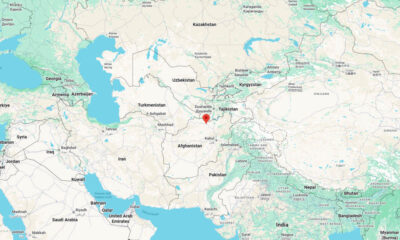Reviews
Why Team-Based Adventures Are Replacing Traditional Nights Out

In recent years, social gatherings have transformed. Traditional nights out—dinners, drinks, or parties—were once the default way for friends and colleagues to connect. While these occasions still hold value, a growing shift points toward more engaging and immersive alternatives: team-based adventures. These activities offer experiences that extend beyond passive entertainment, inviting groups to actively participate, strategize, and bond. From adrenaline-pumping challenges to creative problem-solving exercises, the modern social scene increasingly favors activities that cultivate camaraderie, test skills, and provide memorable shared stories.
Unlike a predictable evening at a restaurant or club, team-based adventures deliver depth, excitement, and a sense of accomplishment. They spark conversations that last well beyond the event and offer participants something more profound than fleeting fun. Cities famous for their vibrant entertainment, such as Las Vegas, have embraced this shift by offering thrilling group experiences that cater to those seeking connection through adventure rather than routine. This cultural evolution reflects changing priorities: people now crave authentic engagement, mental stimulation, and unique moments that set themselves apart from everyday routines.
Sharpening Focus and Fun at the Range
One increasingly popular group experience revolves around visiting a shooting range. Because the “Entertainment Capital of the World” is known to have some of the best shooting ranges, enthusiasts and newcomers alike often seek destinations that deliver both safety and thrill. For groups looking to step outside their comfort zones, The Range 702 is not only the largest, but also one of the best shooting range in Las Vegas, providing an environment where precision, focus, and teamwork blend seamlessly with enjoyment.
The appeal lies in its balance of skill and recreation. Participants, guided by professionals, learn to handle equipment responsibly, practice marksmanship, and cheer each other on through shared challenges. It is less about competition and more about encouragement, as every small improvement becomes a collective achievement. Groups leave with not only adrenaline-filled memories but also with strengthened trust in each other—a quality that can extend beyond the range into personal or professional relationships.
The Rise of Interactive Group Experiences
The desire for more interactive outings stems from a growing dissatisfaction with passive entertainment. Spending hours seated around a table may offer conversation, but it rarely generates the same intensity or excitement as facing a task together. Team-based adventures flip the script: they require action, decision-making, and collaboration.
Whether the activity involves physical exertion, puzzle-solving, or navigating a challenge under time constraints, the underlying principle remains the same—participants are not mere spectators. Everyone contributes to the outcome, and this shared investment creates lasting bonds. This sense of collective responsibility and engagement often transforms strangers into teammates and acquaintances into trusted friends.
Why Traditional Nights Out Are Losing Ground
Standard nights out—while still enjoyable—lack the dynamism that modern groups seek. Repeating the same cycle of dinner, drinks, and conversation can feel uninspired, particularly for people accustomed to fast-paced lifestyles. While comfort and familiarity have their place, the younger generations increasingly prize novelty, challenge, and meaningful engagement.
Additionally, the rise of digital socialization has reshaped expectations. People spend much of their daily lives communicating through screens, leaving them hungrier for tangible, immersive experiences.
The Psychological Rewards of Shared Challenges
Group adventures engage more than just the body—they also stimulate the mind and emotions. Psychologists highlight how shared challenges strengthen social bonds. When people face obstacles together, they develop trust, empathy, and an appreciation for one another’s strengths.
This phenomenon mirrors dynamics seen in workplaces and athletic teams. Just as colleagues grow closer when tackling a demanding project, friends or families build stronger ties by solving puzzles, conquering physical feats, or overcoming fears in adventurous settings.
Diversity of Team-Based Activities
The beauty of modern group outings lies in their variety. From escape rooms that test mental acuity to outdoor adventure courses that emphasize endurance, the options are virtually limitless. Each experience caters to different interests and group sizes, ensuring inclusivity. Some adventures are designed for small groups seeking intimate bonding, while others accommodate larger gatherings aiming for collective celebration.
This diversity also ensures that participants can continuously discover new experiences. Unlike repetitive nights out, which often follow the same script, adventure-based activities evolve.
Strengthening Workplace Culture
Corporate environments have also embraced team-based adventures, recognizing their potential to boost morale and productivity. Traditional office parties or casual outings may foster some camaraderie, but structured group activities provide more substantial benefits.
By engaging employees in challenges that mirror workplace dynamics—such as problem-solving, communication, and adaptability—companies encourage skill development in a fun, low-pressure setting.
The Role of Health and Well-Being
Another factor fueling this shift is the growing emphasis on health and well-being. Team-based adventures often incorporate movement, whether through physical challenges or outdoor environments. This contrasts with the sedentary nature of traditional outings, which frequently center on food, alcohol, and passive leisure.
Participants increasingly recognize the benefits of experiences that energize rather than deplete. Sweating through an activity, solving puzzles under pressure, or achieving a group milestone offers both mental satisfaction and physical invigoration.
Social Media and the Quest for Shareable Moments
In today’s connected age, social media plays a subtle but undeniable role in the popularity of adventurous outings. People seek moments worth capturing—photos, videos, and stories that reflect excitement and uniqueness. A team-based adventure naturally provides such content.
Unlike routine dining or clubbing photos, which can blend into sameness, snapshots of collaborative challenges stand out. They showcase personality, courage, and teamwork.
Evolving Definitions of Fun
At the heart of this cultural shift is a redefinition of what constitutes fun. For many, enjoyment now means more than simply relaxing—it means feeling challenged, stimulated, and connected. Team-based adventures deliver on these fronts by blending excitement with personal growth.
The evolution highlights a broader societal trend: valuing experiences over material possessions. People increasingly spend money on memories rather than objects, and the richer those memories, the more satisfying the investment.
Looking Ahead
The growing appeal of team-based adventures suggests that the future of socializing will continue to emphasize collaboration, creativity, and active engagement. Traditional nights out will not disappear entirely; they remain a comfortable fallback for many occasions. However, the momentum clearly leans toward immersive, interactive alternatives that promise deeper fulfillment.

-

 US News4 days ago
US News4 days agoJetBlue flight diverts to Tampa after altitude drop injures at least 15
-

 US News1 week ago
US News1 week agoUnwarned tornado suspected in Fort Worth as storms cause damage and power outages
-

 World1 week ago
World1 week agoU.S. Navy helicopter and fighter jet crash in South China Sea; all crew rescued
-

 Legal1 week ago
Legal1 week agoMultiple injured in shooting at Lincoln University in Pennsylvania
-

 World1 day ago
World1 day agoStrong 6.3 earthquake strikes northern Afghanistan; felt across Pakistan
-

 World2 days ago
World2 days ago10 people stabbed on train in Huntingdon, England
-

 World22 hours ago
World22 hours agoProtesters storm government building in Mexico after killing of local mayor
-

 US News5 days ago
US News5 days agoTrump says U.S. will resume nuclear weapons testing ‘on an equal basis’



